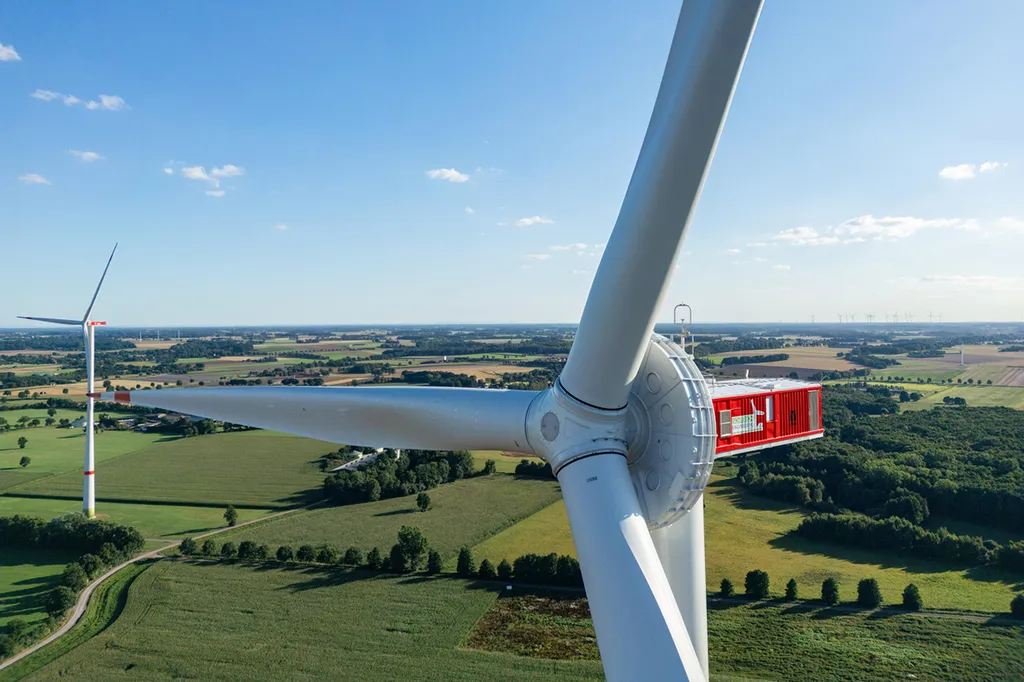Enercon has introduced an integrated wind and battery energy storage product, marking a significant step in the evolution of renewable energy systems. The system, initially available in the German market, combines a battery energy storage system and hybrid controller with new or existing wind farms. This turnkey integration aims to enable operators to tap into future revenue streams and support a regulated energy system grounded in renewable generation technologies.
Karen Hernandez, product manager at Enercon, highlighted the economic and regulatory shifts driving this development. “Economical costs of batteries and changes to regulations in the Renewable Energy Sources Act are creating very good framework conditions for the use of battery energy storage systems in combination with wind energy,” she noted. However, Hernandez also acknowledged the challenges in implementing hybrid projects, citing technological, regulatory, and commercial hurdles. Enercon’s solution, she asserted, offers tailored, secure, and grid-compliant integration, with comprehensive support throughout the project lifecycle.
The integrated system is designed to address Germany’s evolving regulatory landscape, providing a single point of connection into the electricity grid. Uli Schulze Südhoff, chief commercial officer at Enercon, emphasized the financial benefits. “In addition to the fact that intermediate storage allows more energy to be monetised – energy that would otherwise be curtailed – other remuneration opportunities arise from providing system services for grid regulation or through optimised energy marketing,” he explained.
Enercon’s move underscores a broader industry trend towards hybrid renewable energy systems. As renewable energy penetration increases, the need for flexible, storable power becomes more acute. Enercon’s integrated system could set a precedent for other original equipment manufacturers (OEMs), encouraging them to develop similar solutions. This could accelerate the transition to a more flexible and resilient energy system, capable of handling the intermittency inherent in renewable energy sources.
Moreover, the focus on providing comprehensive support throughout the project process could lower the barrier to entry for potential adopters. By mitigating risks and simplifying the implementation process, Enercon may encourage more wind farm operators to integrate battery storage systems, further driving the growth of this market segment.
In the long run, this development could contribute to a more stable and efficient energy system. By enabling better utilisation of renewable energy and providing grid regulation services, Enercon’s integrated system could help reduce the need for conventional power plants, thereby lowering carbon emissions and promoting energy independence.
Enercon chief executive Udo Bauer encapsulated the company’s vision, stating, “As a company we are taking on the responsibility that comes with the next phase of the energy transition and continuing to work on contributing to a clean, secure and affordable supply of energy in Germany with innovative solutions.” This proactive stance could spur further innovation in the sector, as competitors strive to match or surpass Enercon’s offering.

